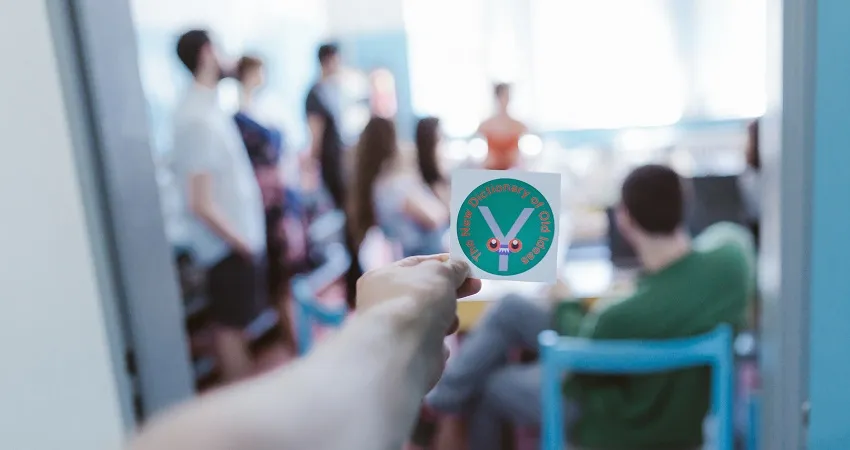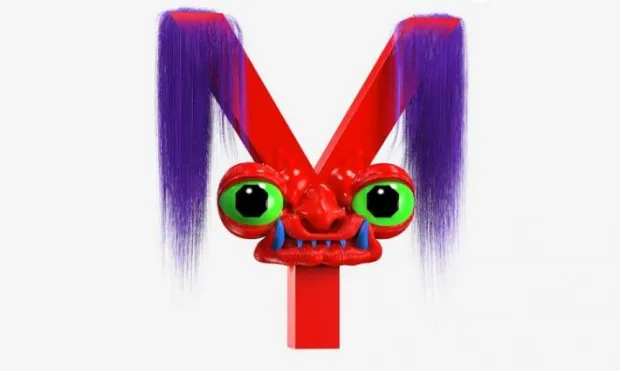How are cultural identities constructed? Power and exploitation in new capitalist societies

6 - 8 pm
Language: Spanish and English
Free entry
As part of the project The New Dictionary of Old Ideas, artists Jiří Žák, Irmina Rusicka, Erick Beltrán and Elena Lavellés propose an extension of their current research through a public dialogue. The event will be guided by Mauro Gil-Fournier and Adrián Almazán Gómez, who will cover themes like extractivism, corporate colonialism, representations of power and power infrastructures, thus connecting with the artistic practices of the residents.
The New Dictionary of Old Ideas is a project that studies the concept of Central Europe, analysing this term beyond just its geographical location, and considering social, political and cultural aspects that also influence its meaning. During this process, questions are asked about pressing issues like the resurgence of nationalism and populism and the unequal balance of power and resources. The project is a network of independent organisations from Central and Eastern Europe whose members are Hablarenarte and CentroCentro (Spain), MeetFactory (Czech Republic),Trafostacja Sztuki (Poland) and Silk Museum (Georgia).
A residence exchange programme for curators and artists continues with research that is already underway, culminating in a travelling exhibition that will come to CentroCentro in June 2020.
This activity is part of Jiří Žák and Irmina Rusicka's residence at Planta Alta.
PARTICIPANTS:
Mauro Gil-Fournier
Mauro Gil-Fournier has a PhD in Architecture (ETSAM, 2016), and works as a researcher and professor. He was involved in projects like Estudio SIC (2009), Estudio FAM (2002) and Vivero de Iniciativas Ciudadanas VIC (2008), which work with the radical inclusion of multilateral and collaborative processes in the fields of architecture and urbanism aimed at urban and citizen innovation. Since 2017, he has jointly coordinated the urban resilience programme (2017-2019) maresmadrid.es, part of the Urban Innovative Actions program (UIA). His work has been presented at national and international forums such as the Venice Architecture Biennale (2018), Oslo Architecture Triennale (2016), Householding Fair Bauhaus-Dessau (2015), Lisbon Architecture Triennale (2013) and Rome Public Space Biennial (2013).
Adrián Almazán Gómez
Adrán Almazán Gómez has a degree in Physics and a PhD in Philosophy. His research interests are focused on the social role of technology and possible alternatives in the light of the current ecosocial collapse. He studies the idea of the new rurality as an alternative to extractivism. He is also a member of Ecologistas en Acción (Ecologists in Action) and the La Torna collective.
Spanish artists
Erick Beltrán
His work takes the form of constant research and reflection into the structural mechanisms of thought systems, specifically on the power relationship that exists between the publishing process and discourse construction. It also focuses on how publishing defines our world and the balance of power between different groups of people. Beltrán reproduces and distributes images to created political, economic and cultural discourse in contemporary society. He lives and works in Barcelona, Spain. + info
Elena Lavellés
Her work is focused on a comprehensive process of theoretical and field research. It combines analysis of cultural and social resistance strategies in different geographical contexts, power structures, exploitation of natural and human resources, related demographic processes, and the historical evolution of the expansion of capitalism associated with colonialism. Her main working media are video, installation art, photography and drawing. Lavellés has put on screenings and individual and collective exhibitions in cities such as Los Angeles, New York, Singapore, Buenos Aires, Mexico City and Madrid. Elena Lavellés lives and works between New York, Mexico City and Madrid. + info
International artists
Jiří Žák (Czech Republic)
His work oscillates between video narratives and various hybrid forms of cinematic and experimental performance art. He also works with audiovisual installations. He is interested in the possibilities of transforming the nature of objects by projecting onto them, and in the discrepancy between our perception of the world and reality. Žák's work seeks new and interesting ways of telling stories about our everyday nature in extremely complex times full of uncertainty. He is a graduate of the Academy of Arts, Architecture and Design in Prague (UMPRUM), where he studied curatorial studies at the Saloun Studio, and has completed an internship at the Karlsruhe University of Arts and Design. + info
Irmina Rusicka (Poland)
Irmina Rusicka is a visual artist whose work takes the form of installations, videos and various forms of research. She graduated in Psychology and History of Art from the University of Wrocław in 2014 within the framework of the programme Interdisciplinary Individual Studies in the Humanities. She also has a diploma in Media Art from the Wrocław Academy of Fine Arts (2017). She participated in a university exchange with Krzysztof Wodiczko, under the supervision of Grzegorz Kowalski (2016–17). Her work combines social and political criticism with an existential dimension. Black humour and anger are also palpable in her work. +info
Curator
Alba Folgado
Curator and resident Spanish researcher in Uppsala, Sweden. In 2016 and 2017, she received the Fundación Botín grant for curatorial studies. Before that, she was part of the team at Stedelijk Museum Bureau Amsterdam. Her practice covers themes of current social and political interest, as well as connecting with critical and non-dominant discourse. She is currently researching how the structures that govern contemporary cities are affecting people's lives and what responses artists and activists are developing to challenge their physical and social limits.


